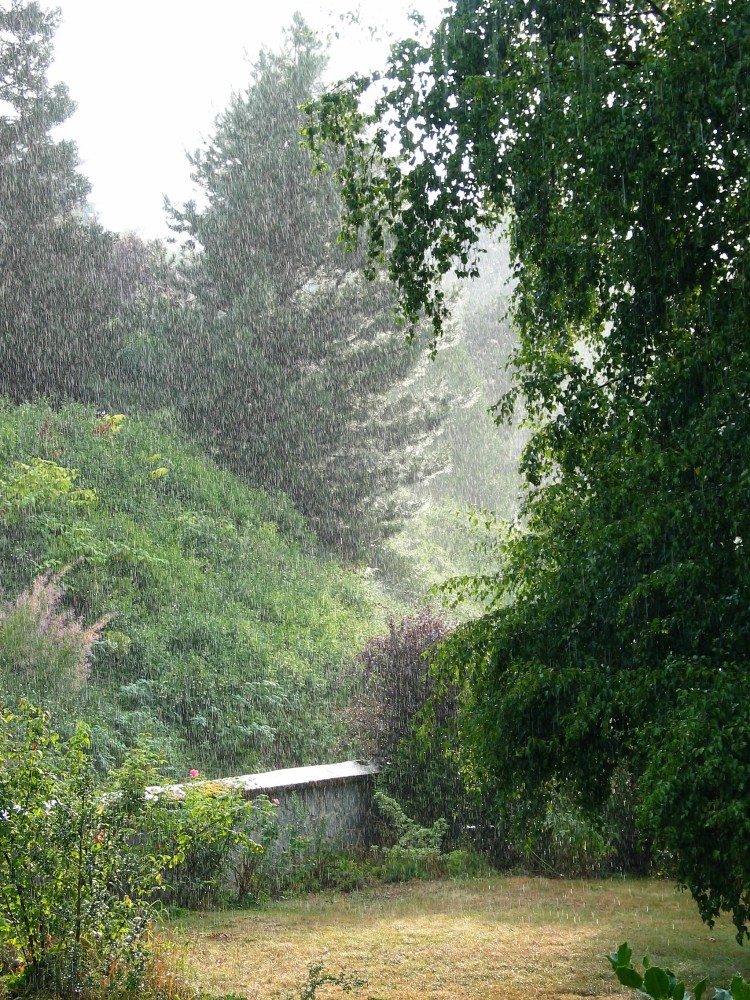
photograph: Evdaimon/Wikimedia Commons
The pleasant smell that frequently accompanies the first rain after a long period of warm, dry weather is called petrichor. The word also denotes an oily liquid mixture of organic compounds which collects in the ground and is believed to be responsible for this smell.
This word is composed of:
– the combining element petr(o)–, from Greek πέτρος (petros), stone, πέτρα (petra), rock, forming nouns denoting things made from, or associated with, rock, as in petroglyph, a rock carving,
– ichor, from Greek ἰχώρ (ikhōr); in Greek Mythology, this word denoted the ethereal fluid flowing instead of blood in the veins of the gods; it was later applied to the serum of the blood.
In English and in French, ichor has the mythological sense, but also denotes:
– a watery acrid discharge from a wound or sore,
– a fluid or ‘emanation’ from a magma which is held to cause granitization of rock.
The term petrichor was coined and defined by Isabel Joy Bear and Roderick G. Thomas in Nature of Argillaceous Odour, published in the scientific journal Nature on 7th March 1964:
The diverse nature of the host materials has led us to propose the name ‘petrichor’ for this apparently unique odour which can be regarded as an ‘ichor’ or ‘tenuous essence’ derived from rock or stone. This name, unlike the general term ‘argillaceous* odour’, avoids the unwarranted implication that the phenomenon is restricted to clays or argillaceous materials; it does not imply that petrichor is necessarily a fixed chemical entity but rather it denotes an integral odour.
* The adjective argillaceous means, of rocks or sediment, consisting of, or containing, clay.
